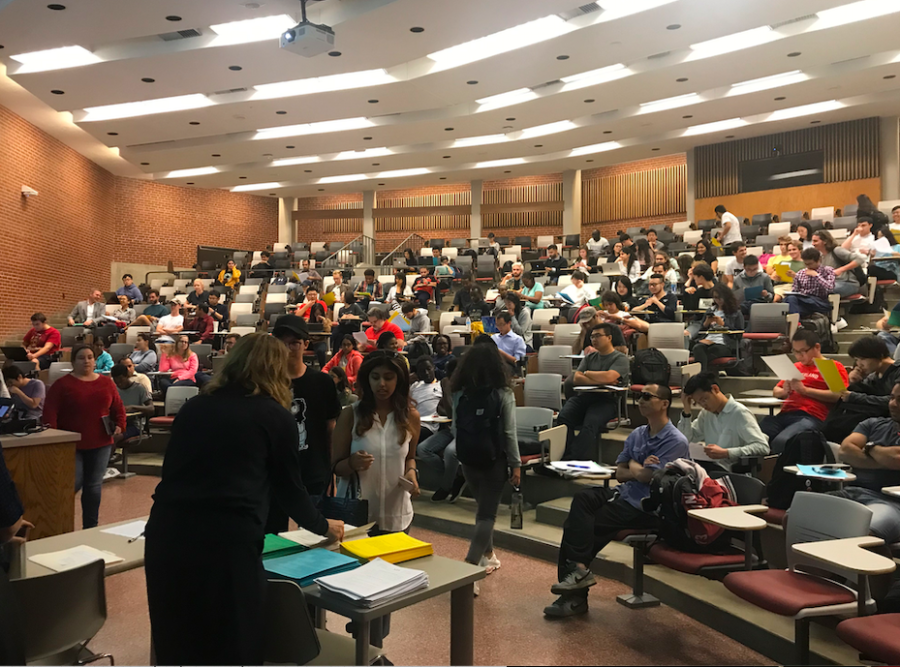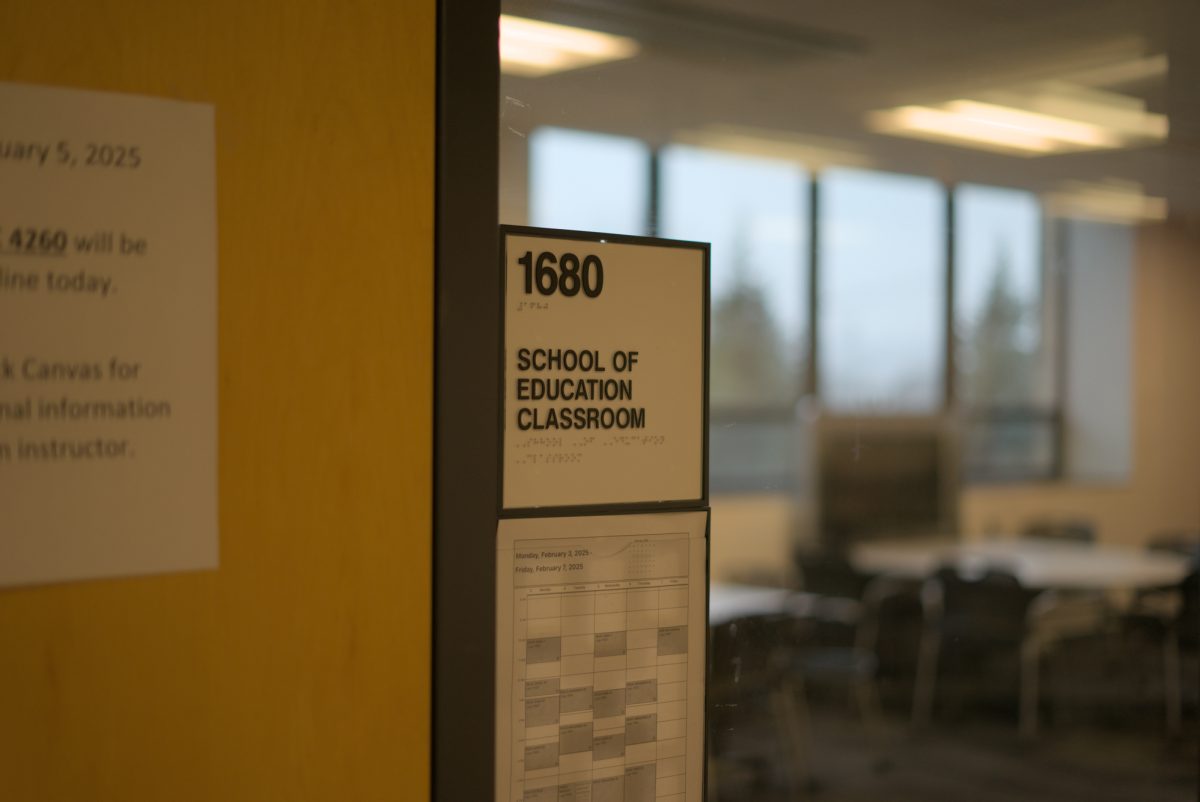Work Visas Made Easy educates students on how to keep visas at Iowa State and beyond
September 26, 2019
More than 100 students gathered in Kildee Hall to hear from two immigration attorneys, David Gluckman and Jonathan Moore, at the Work Visas Made Easy seminar Thursday.
With experience representing companies from various parts of the nation, Gluckman and Moore were able to inform listeners about work visas and green card applications.
Iowa State educates many students from all over the world. Work Visas Made Easy allowed these students the opportunity to learn how to stay in the United States and begin their careers after graduation.
One of these students is Xun Zha, a graduate student in physics and astronomy, who said she is hoping to graduate in two or three years and wanted to learn about her opportunities for work in the United States.
While there are many visa options that students can apply for, Gluckman and Moore emphasized the F1 visa as well as the H-1B visa application. These visas are the most relevant to students seeking jobs in their degree after graduation.
“Your typical halfway after you graduate is you can have an F1 […] and then after that you can have something called Optional Practical Training,” Gluckman said. “Get OPT. Next to the degree itself, it is the single most valuable medicate of that F-1 status.”
With an Optional Practical Training (OPT), students will have one year to work in the United States without their H-1B. It is in this year that students establish relationships with their employers.
“When it comes time to sponsor you, it will be a no-brainer of the institutional knowledge of training that they’ve invested in you,” Gluckman said.
Having an OPT allows time for students to work within a company and is a way for employers to get an understanding of their future employee’s skills and work ethic.
With an OPT status, employees can build trust with their employers, which is important.
John Osorio, a graduate student in industrial design, attended the seminar and is already facing obstacles when it comes to creating and maintaining bonds with employers.
“One of the challenges I’ve been encountering already is finding an employer who is willing to go through this process of sponsorship,” Osori said.
This sponsorship is in regard to the H-1B application process. This is the visa that is typically applied for after working for a year with an F1 or Optional Practical Training.
Employers are the ones to file for their employees. Every fiscal year, 85,000 new H-1B applications are available through a lottery selection process.
Employees will have a maximum of six years to work in the United States with an H-1B status. The work must be within range of their degree, which is declared by their employer at the time of application.
The next step students can take is obtaining a green card. While immigrant students can apply for a green card via a lottery process, it is not advised.
“It is truly a lottery,” Gluckman said. “I think your chances of winning the Powerball are better than they are getting this.”
It is more beneficial for students to apply through an employment status process. The government has established preference categories favoring higher skilled employees to be granted citizenship before workers with less qualifications.
All work visa and green card applications have deadlines and processing times that vary from months to years. Students attending the event were made aware of the importance of these time limits.
Nyzil Massey, a graduate student in biomedical sciences, attended the event and said he hopes to get organized when it comes to applying.
“All this process of getting OPT (Optional Practical Training) and H-1B and green card and all those things, they have to be done,” Massey said. “There’s a timeline to it. I cannot just wake up one morning and have applied.”
After the seminar, Gluckman and Moore talked with students and answered further questions. They encouraged attendees to seek help on campus and even with an attorney for questions regarding post-graduation work in the United States.







